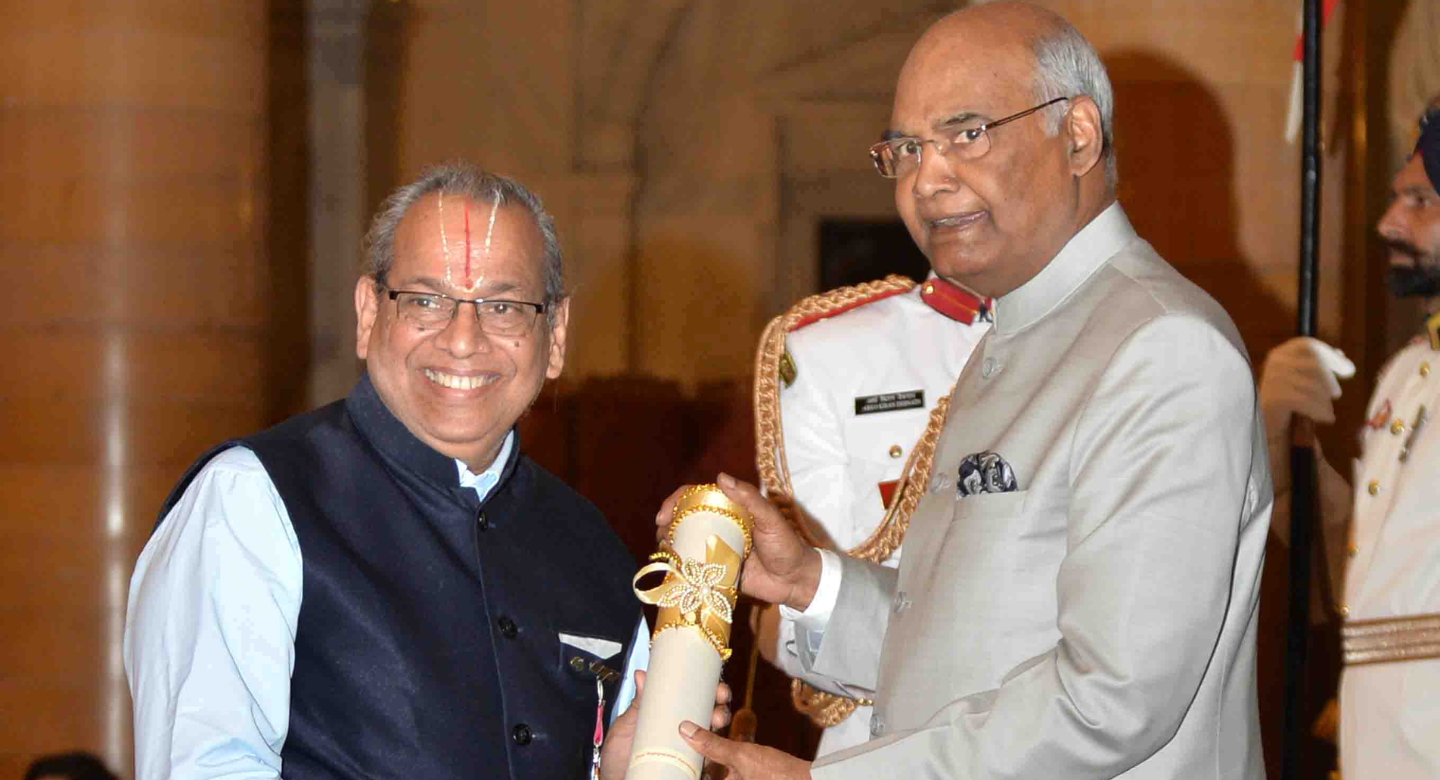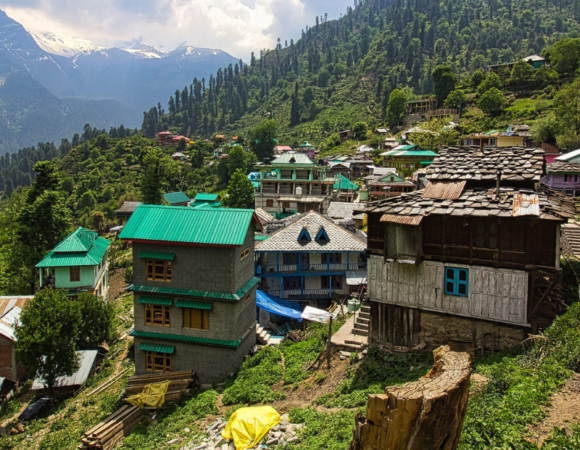Rajagopalan Vasudevan – The Plastic Man of India Revolutionizing Waste Management
Dr. Rajagopalan Vasudevan, affectionately known as the “Plastic Man of India,” has pioneered a revolutionary method to repurpose plastic waste for road construction. His innovation not only addresses the growing plastic pollution crisis but also improves infrastructure development across the country.
Table of Contents
ToggleThe Man Behind the Innovation

Dr. Rajagopalan Vasudevan is a distinguished chemistry professor at Thiagarajar College of Engineering in Madurai, Tamil Nadu. Born in 1946, he devoted his career to finding practical solutions to environmental problems. His journey into plastic waste management began in the early 2000s when concerns about plastic pollution were gaining global attention.
Rather than viewing plastic as waste, Dr. Vasudevan saw it as a misplaced resource. This perspective shift led to his groundbreaking invention: a method to use plastic waste in road construction that would prove more durable than conventional roads while simultaneously addressing the plastic waste crisis.
The Plastic Road Technology
The Innovation
Dr. Vasudevan’s technique, patented in 2006, is remarkably straightforward yet effective. It involves:

- Collection and Preparation: Plastic waste is collected, cleaned, and shredded into small pieces.
- Heating Process: The shredded plastic is heated at temperatures between 165-170°C until it melts.
- Mixing with Aggregates: The molten plastic is then mixed with stone aggregates, creating a plastic-coated aggregate.
- Bitumen Addition: This mixture is combined with bitumen at high temperatures.
- Road Laying: The final mixture is laid like a conventional road.
Benefits of Plastic Roads
The advantages of plastic roads extend far beyond waste management:
- Durability: Plastic roads have shown remarkable resistance to water damage, reducing potholes and extending road life by up to 100%.
- Cost-Effectiveness: The technique reduces the amount of bitumen needed by 10-15%, lowering construction costs.
- Water Resistance: The plastic coating prevents water absorption, making these roads particularly valuable in regions with heavy rainfall.
- Load Capacity: These roads can withstand heavier loads compared to conventional roads.
- Environmental Impact: Each kilometer of a single-lane plastic road can utilize approximately 1 ton of plastic waste.
- Temperature Resistance: These roads withstand temperature variations better, from scorching heat to freezing cold.
Implementation and Impact
Government Recognition

Initially met with skepticism, Dr. Vasudevan’s innovation eventually gained recognition from the Indian government. In 2015, the Indian government made it mandatory to use plastic waste in road construction for all major highways. The technology has been implemented in various states across India, with thousands of kilometers of plastic roads already constructed.
Environmental Impact
The implementation of plastic roads has had significant environmental benefits:
- Waste Reduction: Thousands of tons of plastic waste have been diverted from landfills and water bodies.
- Lower Carbon Footprint: The process requires less bitumen, which reduces the carbon footprint of road construction.
- Community Involvement: The technology has encouraged community participation in plastic waste collection, creating additional income sources for waste pickers.
International Recognition
Dr. Vasudevan’s innovation has garnered international attention. Several countries, including the Netherlands, UK, and Singapore, have shown interest in adopting similar techniques. His work has been recognized with numerous awards, including the Padma Shri, one of India’s highest civilian honors, in 2018.
Challenges and Future Prospects
Current Challenges
Despite its success, the plastic road technology faces several challenges:
- Quality Control: Ensuring consistent quality of plastic waste used in the process.
- Infrastructure Requirements: Need for specialized equipment and training for widespread implementation.
- Public Awareness: Limited understanding of the benefits and safety of plastic roads among the general public.
- Collection Mechanisms: Developing efficient systems for collecting and sorting suitable plastic waste.
Future Prospects
The future of Dr. Vasudevan’s innovation looks promising:
- Technological Advancements: Research is ongoing to improve the technology and extend its applications.
- Policy Integration: More countries are considering incorporating plastic roads into their waste management and infrastructure development policies.
- Educational Initiatives: Dr. Vasudevan continues to advocate for educational programs that promote sustainable waste management practices.
- Expansion to Other Applications: The technology is being explored for use in construction materials beyond roads, such as paving blocks and roof tiles.
Dr. Vasudevan’s Philosophy
Central to Dr. Vasudevan’s work is his philosophy of “waste to wealth.” He firmly believes that the problem of plastic pollution can be solved through innovation rather than prohibition. His approach emphasizes finding value in waste materials rather than simply disposing of them.
“Plastic isn’t the problem; it’s how we use and dispose of it that creates problems. Don’t ban plastic, but learn to use it wisely.” – Dr. Rajagopalan Vasudevan
This perspective has inspired a generation of researchers and entrepreneurs to look at environmental challenges as opportunities for innovation.
The Bigger Picture: Plastic Waste Management in India
Dr. Vasudevan’s work is particularly significant in the Indian context, where plastic waste management presents enormous challenges:
- India generates approximately 9.4 million tons of plastic waste annually.
- Only about 60% of this waste is recycled; the rest ends up in landfills, water bodies, or is burned in the open.
- Major cities struggle with waste segregation and collection systems.
- The impacts on urban flooding, marine life, and public health are severe.
Dr. Vasudevan’s innovation provides a practical solution that addresses these challenges while creating tangible benefits for infrastructure development.
Lessons and Inspiration
The story of India’s Plastic Man offers several lessons for environmental innovation:
- Simple Solutions to Complex Problems: Sometimes, the most effective solutions are straightforward.
- Persistence Pays Off: Despite initial skepticism, Dr. Vasudevan’s persistence led to widespread acceptance of his innovation.
- Changing Perspectives: Viewing waste as a resource rather than a problem opens up new possibilities.
- Local Solutions for Global Problems: Solutions designed for local contexts can have global applications.
- Science for Society: Scientific innovation is most valuable when it addresses pressing social and environmental needs.
Final Thoughts About Journey of Dr. Rajagopalan Vasudevan
Dr. Rajagopalan Vasudevan’s journey from a chemistry professor to the “Plastic Man of India” exemplifies how individual innovation can address major environmental challenges. His plastic road technology offers a practical, economical, and environmentally friendly solution to two significant problems: plastic waste management and infrastructure development.
As we face growing environmental challenges globally, Dr. Vasudevan’s work reminds us that innovation, persistence, and a change in perspective can transform seemingly insurmountable problems into opportunities for sustainable development. The real legacy of India’s Plastic Man may not just be thousands of kilometers of durable roads, but the inspiration he provides for finding creative solutions to our most pressing environmental challenges.
Explore the Journeys of Other Sustainable Hero’s
EcoKaari: Weaving Waste into Worth – A Tale of Plastic, Passion & Purpose
Vandana Shiva – The Voice of Ecological Sustainability




